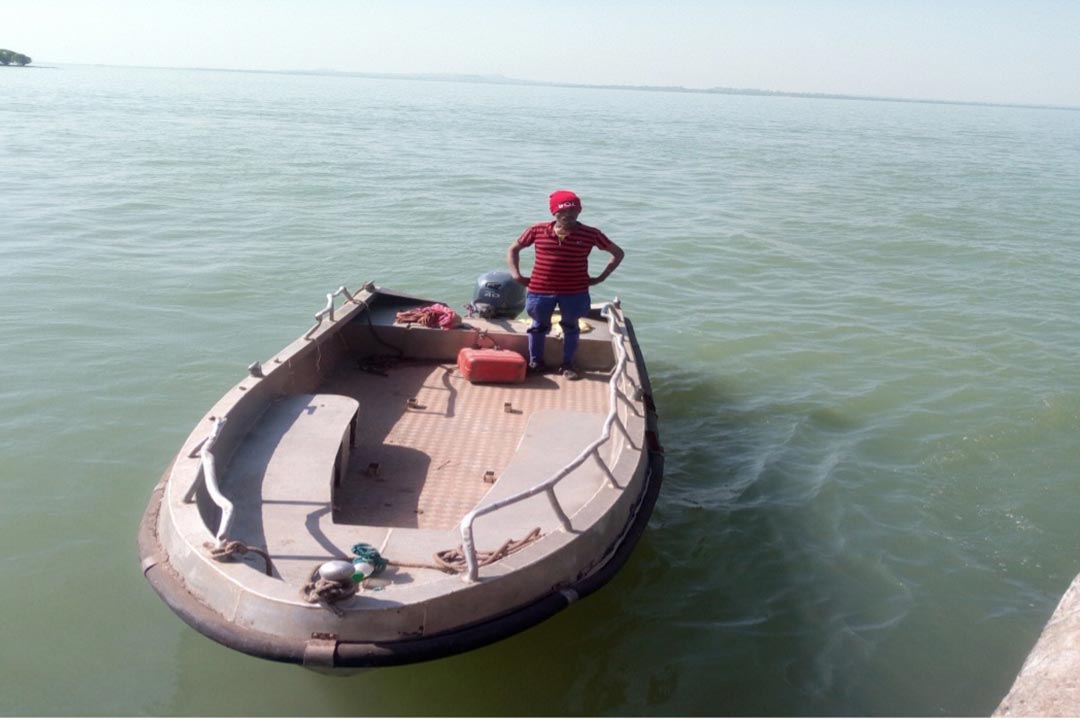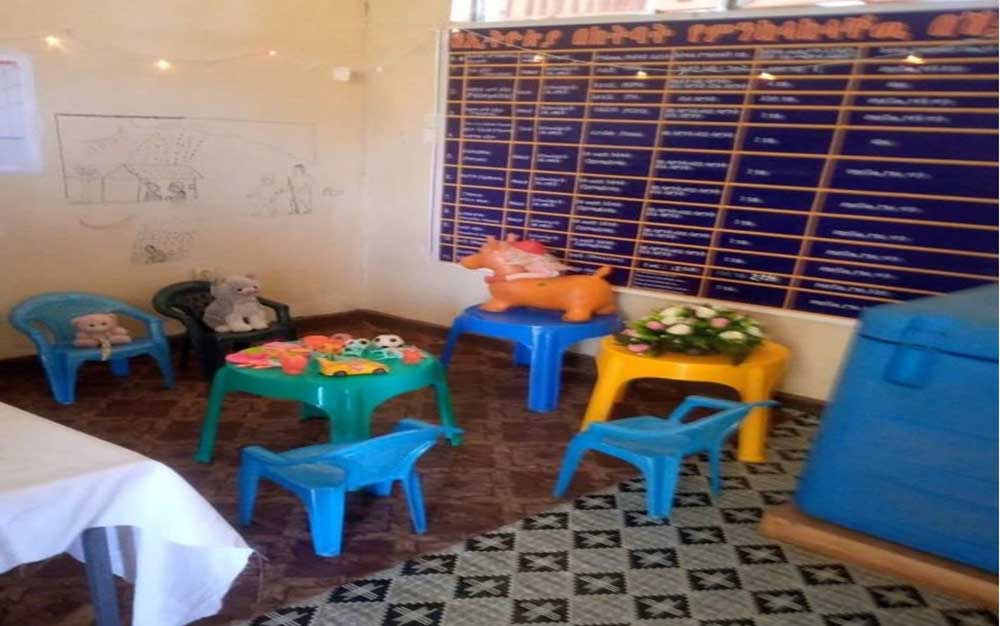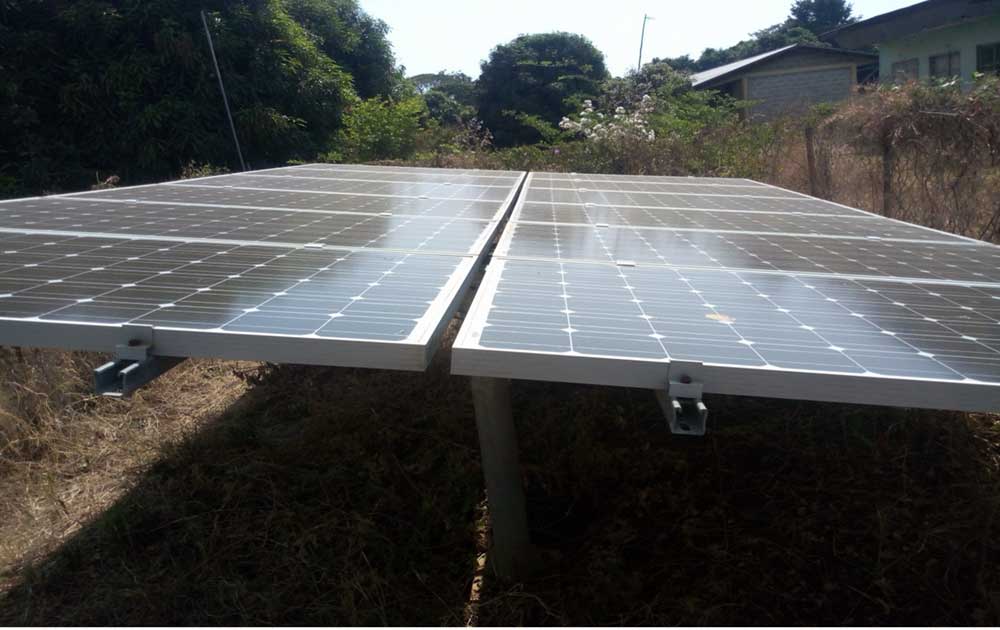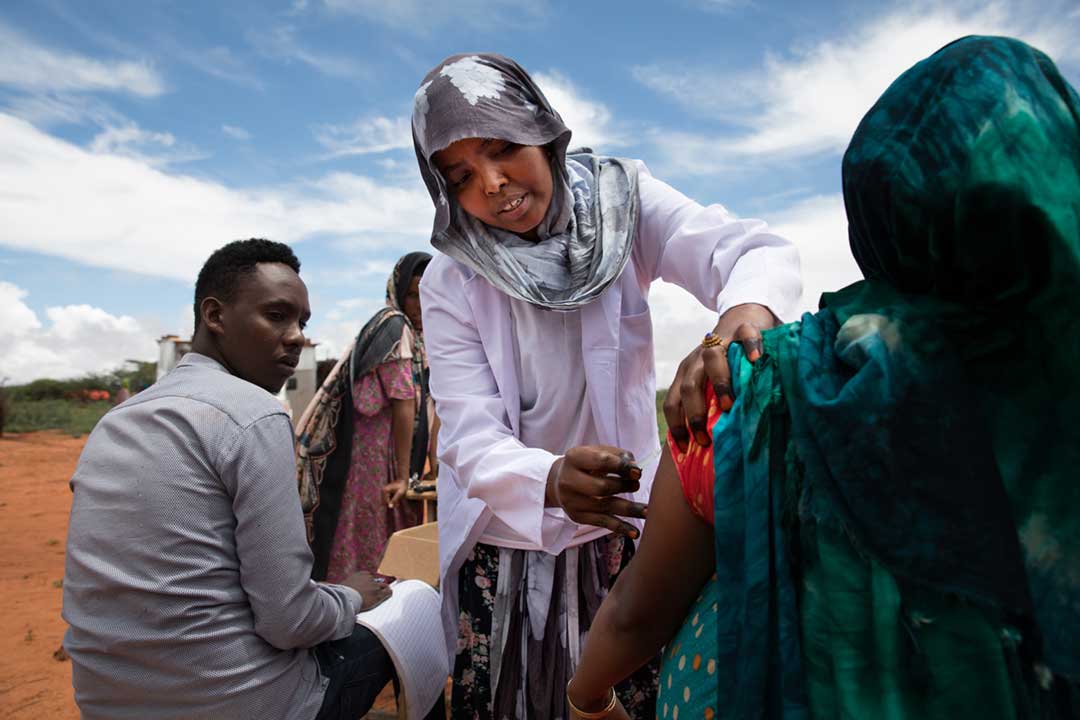Not just a “sharp scratch”: on an island in Lake Tana, immunisation was an odyssey
Solar power, a boat ambulance and extraordinary efforts by the district health office mean that getting vaccinated is finally in relatively easy reach for residents of Dek Island.
- 26 March 2024
- 5 min read
- by Abinet Bihonegn

Just two boat services a week connect Dek Island, the largest island in Ethiopia's Lake Tana, to Bahir Dar, its nearest major city on the mainland, which has long made accessing basic health care, including immunisations, difficult for residents.
When a health centre was built on the island a decade ago, hopes rose, but amid persistent challenges related to infrastructure, transportation, electricity and staff shortages, and with a lack of necessary equipment, the promise of close-at-hand, reliable medical facilities went unrealised for years.
"Vaccines arrive on Dek Island just like everybody else does: slowly, and twice a week. “We have linked vaccine distribution day to public transport day.”
– Wollela Alebachew, district cold chain officer
But since 2020, that picture has shifted. We spoke to health workers, Bahir Dar district health leaders and Dek Island parents, and learned that for vaccination at least, families no longer need to risk an odyssey to the mainland.
Marooned
As recently as four years ago, mothers and their children journeyed four or five hours across the water to the health centre in the city for access to vaccination, explains Alemu Tessma, aged 45, who has lived on Dek Island for many years.

Credit: Bahir Dar Zure District Health Office
"Due to transportation issues, we had to spend at least three days [after the vaccination appointment] searching for a boat to get back," says mother-of-four Zerfie Simachew, who adds that she had little choice but to give birth to her first two children at home on Dek Island.
According to the Bahir Dar Zuria Health District Office, it wasn't only islanders who got stranded during efforts to extend the reach of routine vaccination. Health professionals travelling by boat from the mainland to Dek Island for immunisation outreach sessions had also been known to get stuck on the island for many days at a time.
But Daniel Behulu, head of the Bahir Dar Zuria Health District Office, said that a special push to improve access to vaccination and other basic health services is yielding results.
Special efforts
"According to the national health centre service accessibility standard, [health centres] should be opened [to serve] three to five kebeles, and the total kebele residents should be up to 25,000," Behulu explained.
Dek Island doesn't meet that threshold. It has an area of just 16 square kilometres and comprises only one kebele – the smallest administrative unit in Ethiopia. According to the 2007 census, it's home to only 5,000 inhabitants.
It was in recognition of Dek Island's unique challenges that the Dek Island health centre was established here a decade ago. Still, that proved not to be a silver bullet. The island's difficulties with transportation and electricity have presented a major challenge, Behulu concedes.
The district has continued to hunt for patches and workarounds. "Special attention has been given to the allocation of resources by finding donors in the area of healthcare. As a result, a solar-powered refrigerator has been installed at the health centre to store vaccines."
Four years ago, a solar grid was established at the health centre that now powers not only the refrigerator, but the entire health facility.

Credit: Mulugeta Andulem
After long efforts, the district also managed to furnish Lake Tana residents with a fast boat ambulance in 2019. Since then, several mothers in labour have been able to get to Bahir Dar from Dek Island in just an hour and a half, Behulu says. Boat ambulance captain Tigistu Anemaw says his vessel has also been called on in cases of serious injury.
However, Mulugeta Andulem, manager of Dek Health Centre adds, the boat has been facing fuelling difficulties, due to serious budget constraints.
Getting Dek vaccinated
Vaccines arrive on Dek Island just like everybody else does: slowly, and twice a week. "We have linked vaccine distribution day to public transport day," says the district's cold chain officer, Wollela Alebachew.
Have you read?
That appears to work just fine. Mulugeta Andulem says there have been no shortages of drugs or other equipment in recent times. The District has sent supplies "based on our requests," he confirms.
On two days each month, routine childhood vaccines are distributed to the island's children, who find the vaccination room decorated attractively and equipped with toys.
But despite these improvements, getting kids fully protected has been complicated, says Mulugeta, by a tendency among younger descendants of Dek Island families who have relocated to Bahir Dar, to return to Dek Island when their children are very young, "seeking sustained care from their loved ones". That means that babies often begin receiving vaccines on the island, but pause when their parents return with them to the mainland. "Unfortunately, there is no system yet to ensure that vaccination resumes when they return to Bahir Dar."
In a bid to fill in the blanks on resident islanders' immunisation charts, however, health extension worker Mastewal Tsegaye said Dek Island health workers went door-to-door to collect the data they needed, raising awareness of the importance of immunisation along the way.
Now, says Mastewal, "there is no lack of awareness regarding vaccination on the island – importance of vaccination has been emphasised by the local community by working with religious leaders, elders and kebele leaders."
A blessing
Dek – home to notably ancient indigenous trees as well as its small human population of mainly small-scale farmers – used to be inhabited exclusively by monks and "spiritualists". Today, there are no fewer than seven Orthodox Christian churches on the island.
Most of the island's residents are followers of the Ethiopian Orthodox Tewahedo faith. Father Abera Gebre-Hiwot ministers to many of them.
During Sunday church services, health professionals have been preaching the importance of vaccination, he confirms: "Recently, we have collaborated to vaccinate most of the island's residents against COVID-19."
There is little question that there have been major improvements to the Dek Island health facilities in the past couple of years, says Daniel Behulu. But there's a way to go yet.







